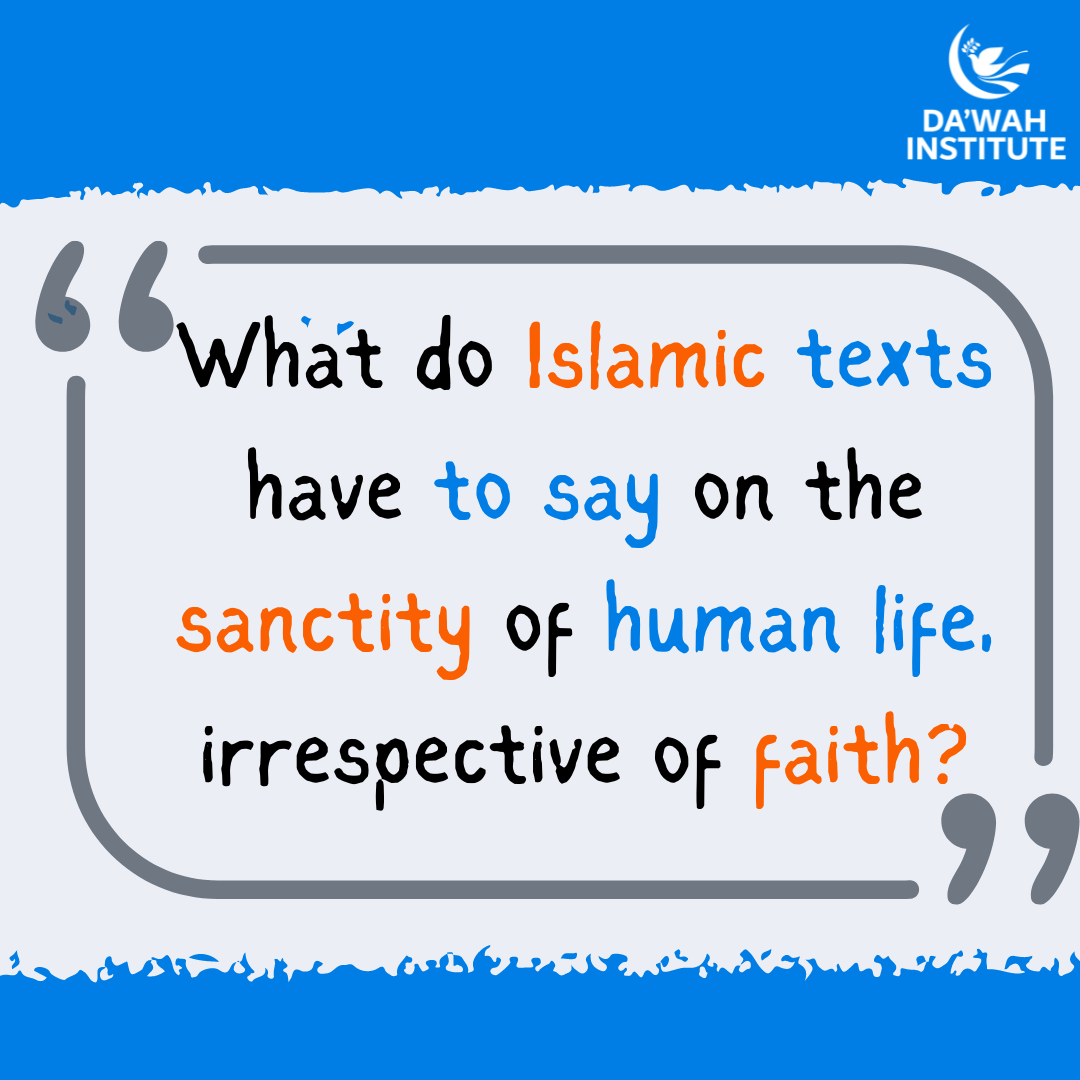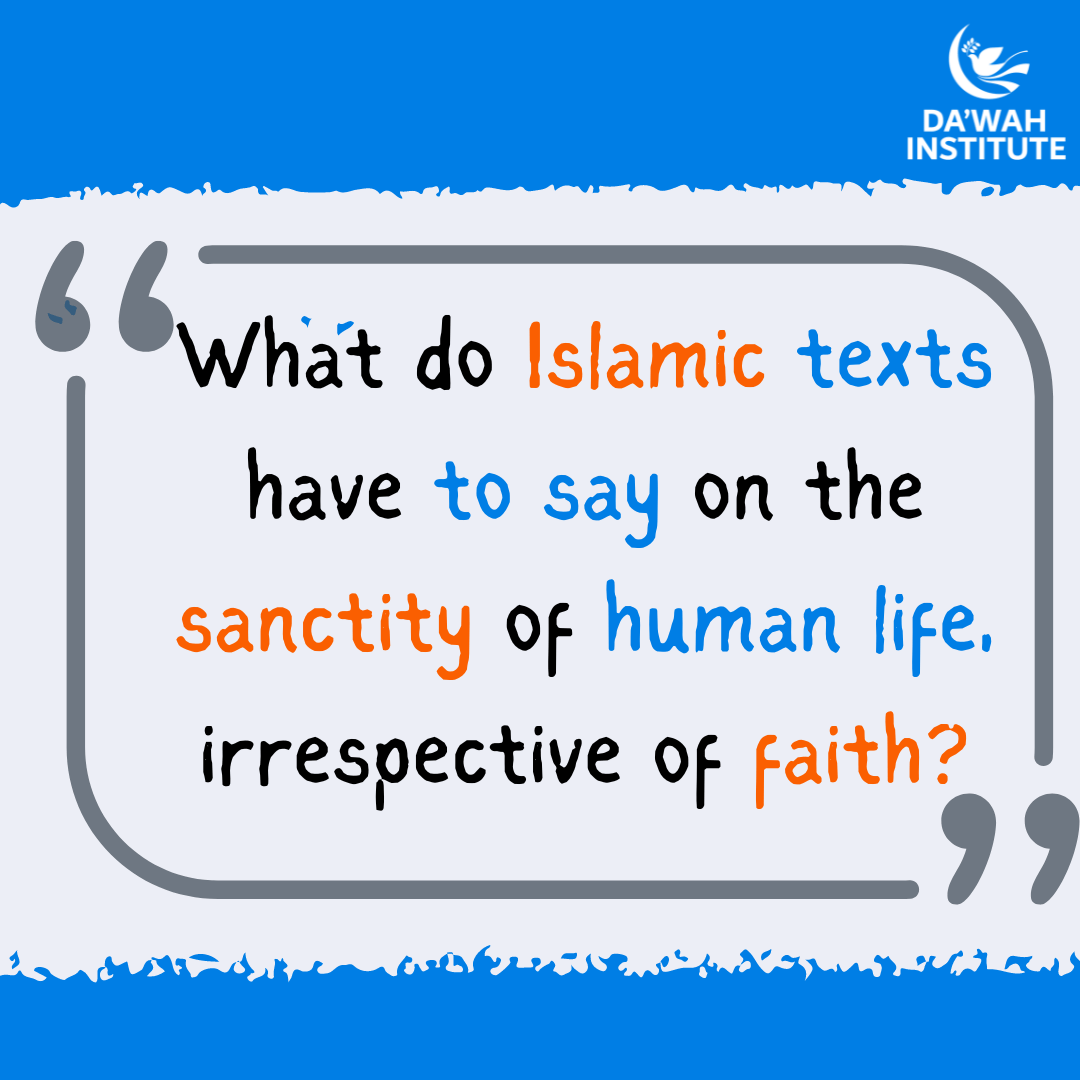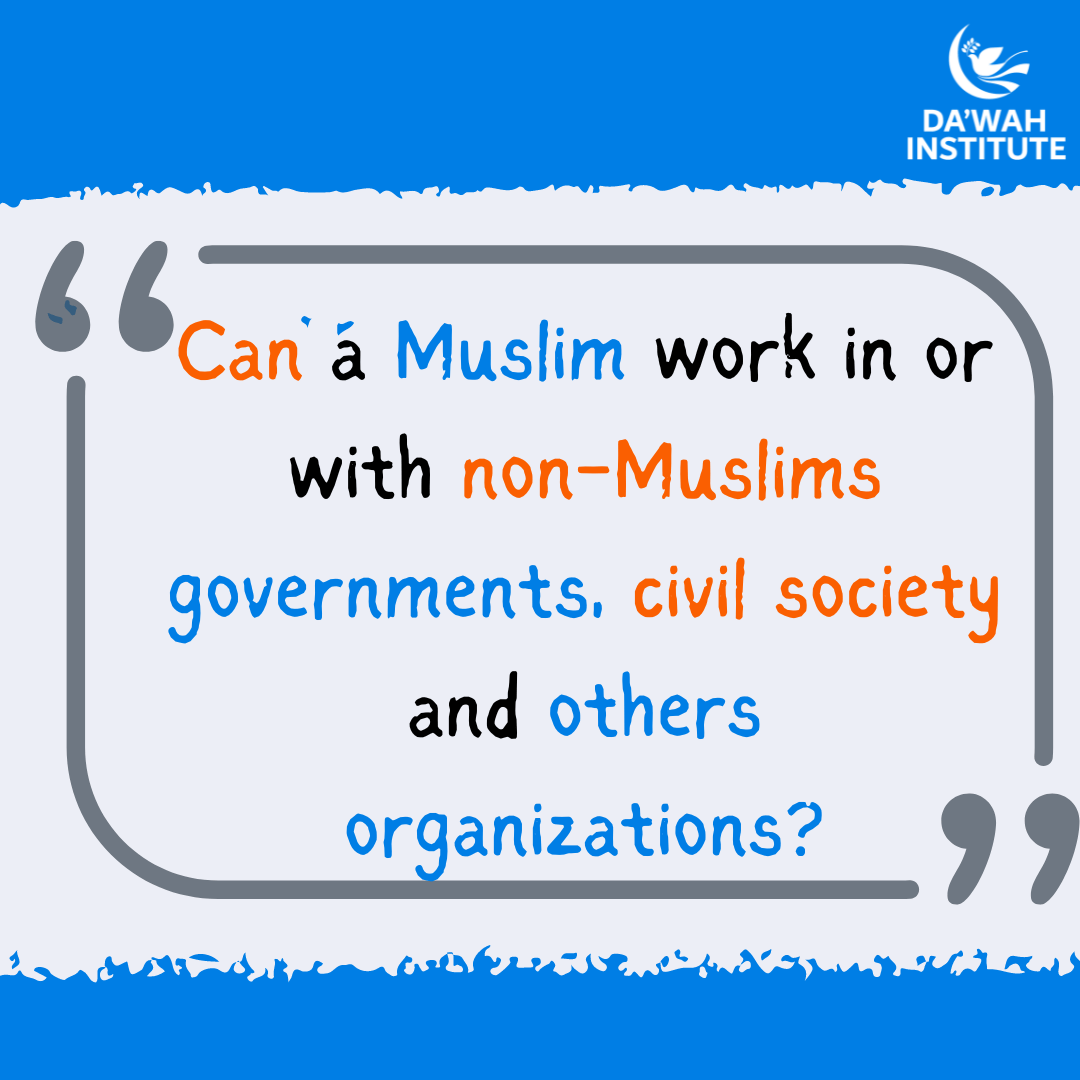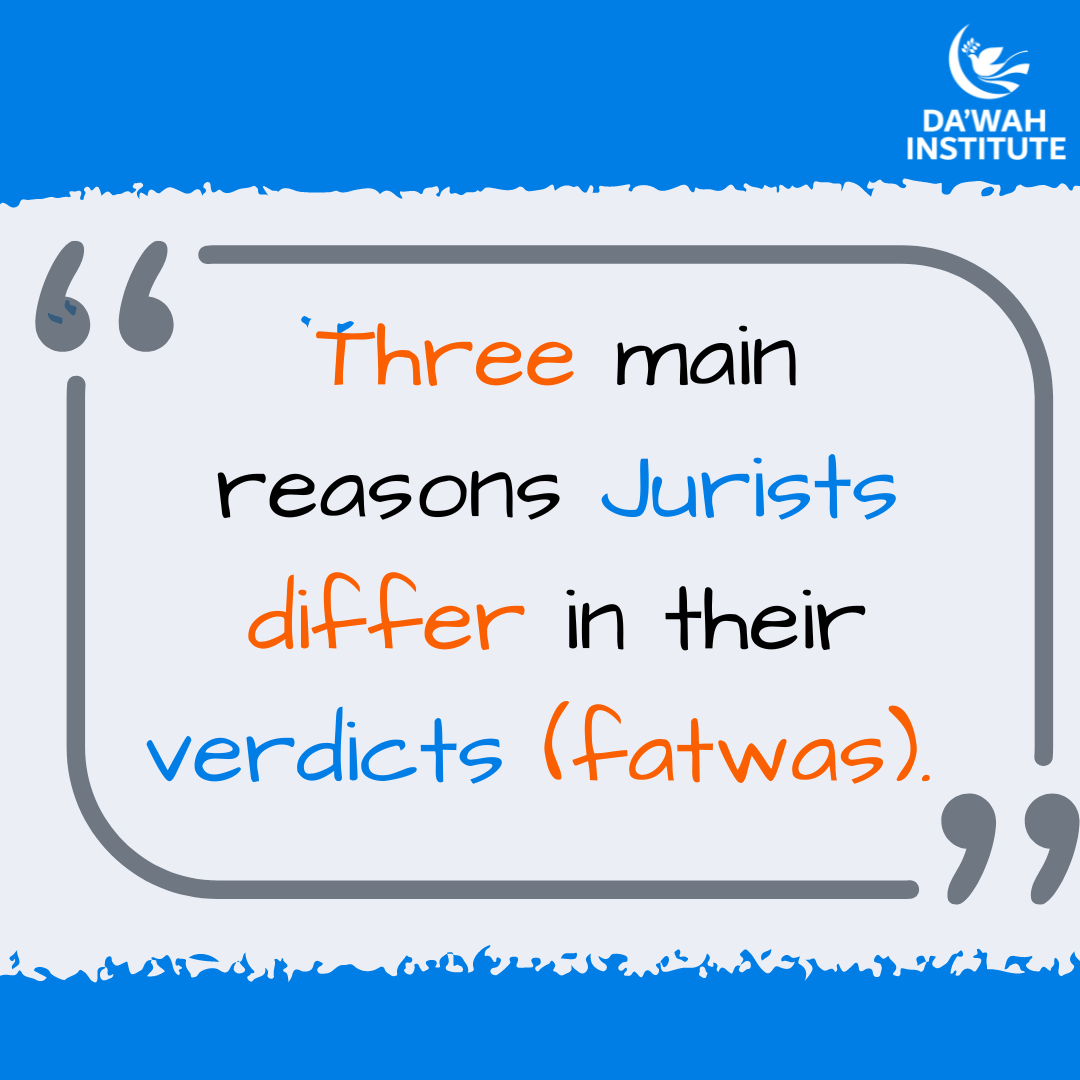
Allah stated in Qur’an 5:45;
“We have prescribed therein for them (the Children of Israel); a life for a life, an eye for an eye, nose for nose, ear for ear, tooth for tooth …”
To prevent any confusion about the implication to Muslims of this Qur’anic verse, the respected companion of the Prophet (p) Ibn Al-Musayyab is reported as having said regarding this particular verse, that “this verse is for us (Muslims) and for them (Jews).” (Badr al-Din al-‘Ayni, Umdat al-Qari, vol.2, p.161) In other words, this verse applies to both Muslims and non-muslims. And it does not make any distinction regarding the value of one life over another based-on religion.
In the Qur’an 17:33, Allah says,
“And take not the life which Allah has made sacred, unless it be in the cause of justice. Whoever is killed unjustly, we have appointed to his next-of-kin authority; but let him not exceed in slaying. He (the near kin) will certainly be helped (to seek redress).” This verse again makes no distinction regarding the value of one person’s life over another based-on religion, class or gender, etc.
All these verses are very clear and general in their import, making no distinction between human beings based on gender, religion, age, ethnicity, class or social status. No verse in the Qur’an regards the life of any innocent citizen more sacred or valuable in the consideration of Islamic law than another based on religious difference.
In the hadith of the Prophet (p), he is reliably reported to have made some general statements regarding the sin and punishment for murder without discrimination based on the religion of the victim.
The Messenger of Allah was asked about the gravest of all sins (al-kaba’ir), and he said, “To join partners in worship with Allah, to slay a soul (which Allah has forbidden), and to be unkind to one’s parents…” Bukhari, Sahih al-Bukhari, Dar bin Kathir, Beirut, 1407AH, hadith no. 5632
From the clear and explicit texts of the Qur’an and Sunnah, the life of every human being is sacred and should be equal in the eyes of the law, irrespective of a difference in religion and gender, etc. Sahih al-Bukhari, vol.9, hadith no. 50 in Alim 6.0 and vol.4, p.326-327





